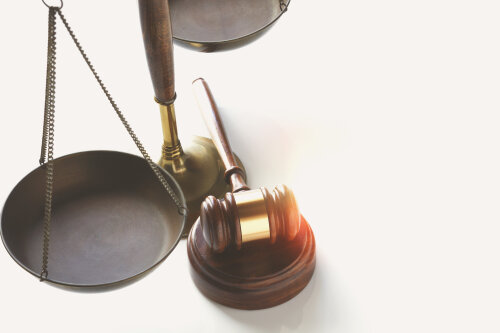Best Defamation Lawyers in Fort McMurray
Share your needs with us, get contacted by law firms.
Free. Takes 2 min.
List of the best lawyers in Fort McMurray, Canada
About Defamation Law in Fort McMurray, Canada
Defamation in Fort McMurray, as in the rest of Canada, involves a false statement that damages someone's reputation. These false statements can be spoken (slander) or written (libel). Canadian law protects individuals against defamation while also ensuring freedom of expression under the Canadian Charter of Rights and Freedoms. In Fort McMurray, being part of Alberta, defamation cases are handled following this national framework, with some provincial variations. Alberta courts are responsible for adjudicating defamation lawsuits, and remedies can include apologies, retractions, or monetary compensation.
Why You May Need a Lawyer
Individuals may require legal assistance in defamation scenarios for several reasons. For instance, you might be the victim of false statements that harm your personal or professional reputation, or you could be accused of defamation. Legal advice is crucial to ascertain the truth, intent, and harm caused by the statements in question. This process involves complex legal analyses and strategic considerations, making legal guidance essential. Additionally, early legal intervention can help in preserving evidence, navigating negotiations, or proceeding with court actions if necessary.
Local Laws Overview
In Alberta, defamation law is influenced by case law, meaning that legal precedents significantly impact how defamation claims are handled. The Defamation Act of Alberta provides the statutory framework, detailing definitions, defenses, and remedies. Key elements required in proving defamation include the publication of the statement, its falsity, and resultant harm. Alberta law also recognizes several defenses against defamation claims, such as truth, fair comment, privilege, and responsible communication on matters of public interest.
Frequently Asked Questions
What constitutes defamation in Fort McMurray?
In Fort McMurray, a statement is considered defamatory if it is published, false, injurious to a person's reputation, and made without a valid legal defense.
What's the difference between libel and slander?
Libel refers to defamatory statements made in written or permanent form, while slander involves spoken statements. Both can result in legal action under defamation laws.
Can I file a defamation claim for online statements?
Yes, statements made online can be considered defamatory if they meet the legal criteria. Given the reach and impact of online publications, they are treated seriously under defamation laws.
How do I prove defamation?
To prove defamation, you must establish that the statement was false, published, caused harm, and was made without privilege or other defenses.
What defenses are available against defamation claims?
Common defenses include truth, absolute and qualified privilege, fair comment, and responsible communication on matters of public interest.
Are there time limits for filing a defamation lawsuit?
Yes, typically, defamation claims must be filed within two years of the date the defamatory statement was made or published, according to Alberta's limitation laws.
Can I claim damages for defamation?
Yes, if you can prove defamation, you may be entitled to damages for reputational harm, financial loss, and emotional distress, among other potential damages.
Is it possible to resolve defamation disputes without going to court?
Many defamation disputes are resolved through negotiation, mediation, or reaching a settlement before proceeding to trial.
What should I do if someone accuses me of defamation?
If accused, it's crucial to seek legal advice promptly, preserve any evidence supporting your position, and refrain from making additional statements about the matter.
Do public figures have different standards in defamation cases?
Yes, public figures may have to prove a higher standard of fault and demonstrate that the defamatory statement was made with actual malice or reckless disregard for the truth.
Additional Resources
For those seeking further information or assistance with defamation issues in Fort McMurray, helpful resources include the Law Society of Alberta, which provides lawyer referrals, the Canadian Journalists for Free Expression for media-related cases, and Alberta Courts' website, which offers information on court procedures and decisions.
Next Steps
If you believe you have been defamed or are facing a defamation claim, the first step is to consult with a lawyer specializing in defamation law. They can assess your situation, help gather evidence, and guide you through the legal processes. You can also contact the Law Society of Alberta for a list of qualified attorneys in your area. Early intervention by a legal professional can clarify options and prevent unnecessary complications in your case.
Lawzana helps you find the best lawyers and law firms in Fort McMurray through a curated and pre-screened list of qualified legal professionals. Our platform offers rankings and detailed profiles of attorneys and law firms, allowing you to compare based on practice areas, including Defamation, experience, and client feedback.
Each profile includes a description of the firm's areas of practice, client reviews, team members and partners, year of establishment, spoken languages, office locations, contact information, social media presence, and any published articles or resources. Most firms on our platform speak English and are experienced in both local and international legal matters.
Get a quote from top-rated law firms in Fort McMurray, Canada — quickly, securely, and without unnecessary hassle.
Disclaimer:
The information provided on this page is for general informational purposes only and does not constitute legal advice. While we strive to ensure the accuracy and relevance of the content, legal information may change over time, and interpretations of the law can vary. You should always consult with a qualified legal professional for advice specific to your situation.
We disclaim all liability for actions taken or not taken based on the content of this page. If you believe any information is incorrect or outdated, please contact us, and we will review and update it where appropriate.








